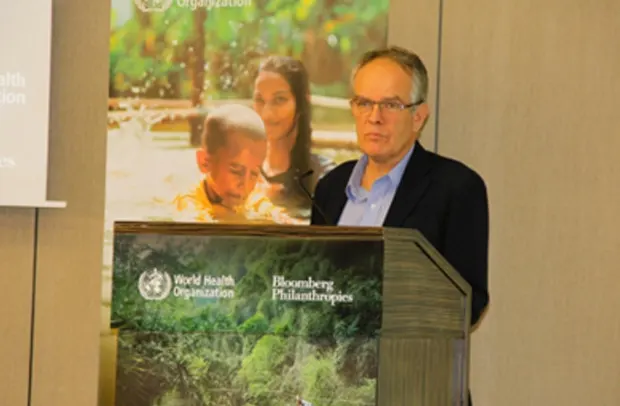Dr. Etienne Krug, Director, Department for Social Determinants of Health at WHO
In a startling revelation at the official launch of the Global Status Report on Drowning Prevention in Geneva, Switzerland, it was disclosed that approximately 1,400 people die from drowning annually in Ghana.
This staggering figure highlights a silent public health crisis that has largely gone unnoticed, despite its devastating impact on families and communities across the country.
The Head of Injury Prevention at Bloomberg Philanthropies, Kelly Larson, stressed the urgent need to address drowning as a public health priority during a conversation at the Intercontinental Hotel, where Bloomberg Philanthropies, in collaboration with the World Health Organisation (WHO), unveiled their first global report on drowning prevention.
Larson noted that drowning is a significant global health issue, claiming over 300,000 lives each year, with 90% of these deaths occurring in low-and middle-income countries.
“In Ghana, the lack of drowning data has hampered the ability to fully comprehend the scale of the problem and implement targeted interventions,” she said.
However, she expressed optimism about the country’s efforts to reverse this trend, particularly through research partnerships and evidence-based strategies.
Bloomberg Philanthropies, in collaboration with the Centres for Disease Control and Prevention (CDC) and Kwame Nkrumah University of Science and Technology (KNUST), conducted a groundbreaking research to better understand the circumstances surrounding drowning in the country.
The findings painted a grim picture, with drowning incidents frequently occurring in rivers, lakes, and along the coast, often involving children and young adults.
The research has provided a foundation for strategic interventions. According to Larson, Bloomberg Philanthropies is working with local and international partners to encourage government investment in drowning prevention programmes.
This involves data collection to identify high-risk areas and the implementation of proven measures such as public education campaigns, swimming training programmes, and lifeguard deployment.
Bloomberg Philanthropies has already piloted successful drowning prevention programmes in countries like Bangladesh, Vietnam, and Uganda.
Ghana is now set to benefit from these experiences. In Accra, initiatives are underway to provide basic water safety training and swimming instruction on popular beaches, as well as studies to evaluate the effectiveness of lifeguards in preventing drowning deaths.
Larson underscored the importance of these efforts, stating, “We are just getting started in Ghana, but the goal is to demonstrate how a combination of data-driven interventions and government commitment can save lives.”
The launch of the Global Status Report on Drowning Prevention is a significant milestone. It provides governments with comprehensive data and actionable recommendations to tackle drowning.
In Ghana, this report will serve as a blueprint for developing a national strategy to address the issue. Key recommendations include establishing community-based water safety programmes, improving surveillance systems to collect more accurate drowning data, and increasing public awareness about water-related risks.
By Nana Appiah Acquaye, Geneva


